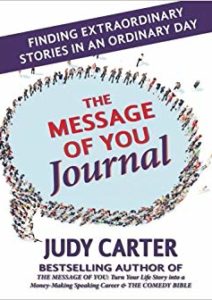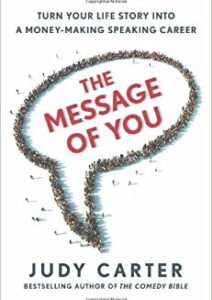A TED talk is the most direct route to establishing yourself as a thought leader and expert. Following my own TEDx talk my book sales soared, and I was hearing from speaker bureaus I’d never worked with. Mostly, though, I ended up with a video that truly expresses, as it says on the application, “an idea worth spreading.”
To help you find your very own “idea worth spreading” and to help you compose your TED talk, here are 12 tips:
- Identify your audience. Usually, TEDx talks are geared to a specific audience. Decide which demographic would most benefit from hearing your message: Women? Bankers? Techies? Entrepreneurs? Realtors? Maybe students?
- On the TED application, focus on what problems your topic solves for the listeners. Don’t make the mistake of sharing YOU.
- Consider the consequences of the problems that you stated. For example, if entrepreneurs are finding themselves stressed, what is the result of that stress? Connect your topic to issues of money, health, or relationships; those are things that matter to everyone.
- Make it personal. Find your own story with a mess to success journey, indicating how you solved the very problem you chose to talk about.
- Identify a specific scene in your story with a “Eureka Moment.” This is where you identified the problem and figured out how to solve it.
- When you tell your story, be in it; don’t just tell it. It helps to act out the dialogue, reveal what you were thinking, and use present tense verbs to make it more dynamic. For example… “There I am…” Rather than, “There I was…”
- Make the audience aware of your goal in your story, what was driving you.
- Tell about the obstacles that got in the way of you getting what you wanted. They may be physical (such as traffic, weather, a presidential motorcade), other people, or internal obstacles such as childhood trauma.
- After telling your story, give the audience specific actions so they, too, can have successful results.
- When you give action steps, make sure you don’t confuse them with results. For example, telling people to be more confident — that’s a result. A step towards being more confident would be: speak up at a meeting by asking questions.
- Always end your talk with a call to action. Give the audience things they can actually do. Don’t say, “Go home and write thirty pages of your new book.” It’s better to say, “Picture your book signing. Ask yourself who and what do you need to appreciate.” Give the audience an assignment that is do-able in the moment.
- When adding humor to your talk, keep it authentic. Don’t insert jokes. Relate to your audience and to yourself with humor that is relevant to you and to your topic.
Need to find your TEDx message? I can help at https://themessageofyou.com














Comments